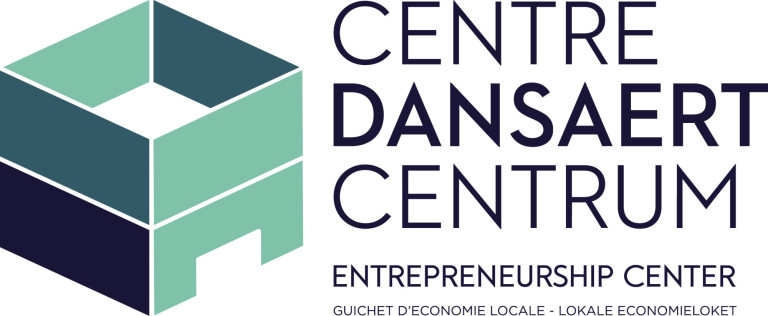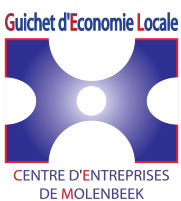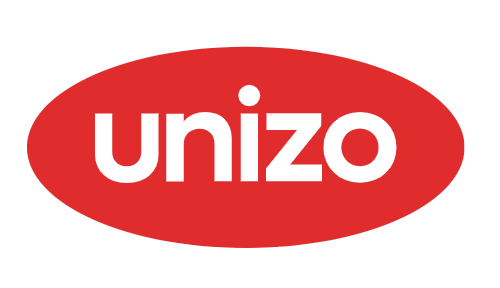You’ve been thinking about setting yourself up in your own business for some time now, but you haven’t been able to find a unique concept. You’re reticent about creating a company from the ground up and you would prefer to avoid taking too many risks. A franchise might be the right solution for you. Which type should you choose?
Franchising is an increasingly popular business concept around the world. The trend is clear in Belgium too. Fast-food chains like McDonald’s and Domino’s Pizza, as well as supermarket chains like Match and Carrefour Express, hair salons like Frank Provost and Olivier Dachkin, shops like Yves Rocher and DIY chains like Hubo are among the best-known franchise brands. Franchising has moved into services as well, notably in the interim, real estate (Century 21), retail and cleaning sectors. There are many to choose from!
What is a franchise exactly?
A franchise is a collaboration contract between two independent parties:
- The franchisee: in other words, you, the self-employed entrepreneur
- The franchisor: the owner of a franchise concept
Within this framework, the franchisee obtains, for a fee, the right to sell a concept, a product or a service developed by the franchisor. This right authorises and obligates the franchisee to use the logo, trademark or branding name of the franchisor. In exchange, the franchisor must provide ongoing sales and/or technical support to the franchisee for the duration of the contract. A franchise consists of three ingredients: the transfer of know-how, support and the use of a brand.
Note: a franchise isn’t a subsidiary. The subsidiary of a chain of stores is wholly owned by the parent company and is operated by personnel with a salaried employee contract. A franchisee is an independent business person. Supermarket chains often use a combination of the two systems: some subsidiaries and some locations operated under a franchise agreement.
Many advantages
Start-up is definitely less risky for you as a franchisee because:
- you retain your independence and you are your own boss;
- you can immediately offer a complete, proven line of products or services;
- you don’t have to build a supplier network;
- you can take advantage of the franchisor’s name recognition. Customers already know the store or service. You don’t have to invest in expensive adverts on the radio or television (as a young entrepreneur, you generally won’t have a budget for this anyway);
- Given that the franchisor handles many tasks like market studies, purchasing, marketing, advertising, store set-up and pricing, you will save a lot of time and can concentrate entirely on direct contact with the customer, local marketing, after-sales service, deliveries, etc.;
- you can take advantage of the economies of scale and standardisation associated with the franchise option. Therefore, you can buy for less and can generate more margin on your products;
- thanks to the extensive experience of the franchise organisation, investments are defined quite precisely, which limits financial problems;
- You are part of a network of franchisees and can potentially benefit from your colleagues’ innovations;
- you can benefit from existing experience, tools, management, training and franchiser support. In fact, it is in the latter’s best interest that you succeed!
- you can generally obtain a credit or loan for your company more easily.
Drawbacks and risks
As a franchisee:
- you have no guarantees. It isn’t because an approach works in one region that it will also be successful in another one;
- you also assume certain risks. As an independent businessperson you are responsible for the revenue and profits, you are responsible for your customers and third parties, you must invest in the building/lease and pay membership fees...
- you are less independent because the franchiser has many rules, directives and procedures that you must follow and they define many aspects of the business (products, pricing, layout, etc.).
What are the different franchise options?
The level of freedom of the franchisee (the distribution in your store, the additional products you can sell) can differ significantly from one option to another and will depend on what is stipulated in the franchise contract. Franchising can be either “hard” or “soft” and there are variants of both.
Hard franchising or full franchising ?
This is the most common format in which an individual franchise contract is agreed between the two parties. The agreements are clearly laid out in the contact and are explained in a detailed franchise manual. The provisions for the visual identity of the company, the inventory, purchasing and advertising are set, leaving you less freedom in these areas. On the other hand, you can focus on your customers and staff. Hard franchising is common in major chains.
SOFT FRANCHISING
Things are much more flexible with soft franchising. Normally, the brand and the logo are shared, but you have much more freedom for everything else and you have to take care of many things on your own. In fact, you will be collaborating in a partnership or cooperation of which you are a “member” and whose articles and rules you comply with.
How much does it cost?
The fees vary depending on the franchise type because support can vary significantly from one franchiser to another. They generally consist of:
- The entry fee. This is a one-time fee which must be paid at the start of the partnership and which covers the investments made by the franchiser to develop the concept and recruit potential candidates.
- The franchise royalties. They cover the commercial and technical support and management provided by the franchiser. They consist of a percentage of revenue or a set monthly fee. The royalties are also sometimes included in the products the franchisee must purchase from the franchiser.
- A contribution to marketing expenses. This is often invoiced separately, but can also be included in the fixed franchise royalties.
The royalties due to the franchiser are obviously not the only expenses you will have in the beginning. You may have to lease a commercial space (if applicable) and potentially refurbish it and there is also the inventory, insurance, staff, etc.
If you want to determine if the membership fees and royalties are reasonable, you must check everything included in the services and the frequency at which you will benefit from certain services. Also calculate the entire cost if you would have to finance everything yourself.
Tricks and tips for franchise to be
Want to get started? Here are few tips!
CHECK YOUR QUALIFICATIONS
A franchisee is first and foremost an entrepreneur and the head of a company. Why do you want to start a franchise; how much time do you want to spend on it; does your family support you; do you already have experience managing people; what do you think about being dependent on another party for the management of your business?
SELECT A CONCEPT THAT SUITS YOU
Ask yourself what field you want to be active in and what franchise options exist in the field in Belgium. Is it DIY (e.g. Brico), decoration (e.g. Ixina, Heytens), retail (Tom&Co, Yves Rocher), hospitality (Deli traiteur, Domino’s Pizza, etc.), fashion (e.g. Veritas), services (Century21) or a supermarket (Carrefour, etc.)? Don’t hesitate to consider less obvious concepts where there is less competition and the market isn’t saturated.
FINANCING
What resources can you invest personally? Be sure to have an overall financial view (by creating a business plan) in order to know if you can potentially get a loan.
INFORMATION TOUR
Examine several franchise concepts. Ask for information from different franchisers in the field you want to enter. Read the news or check if they are looking for franchisees in your region.
PRECONTRACTUAL NEGOTIATIONS
Ask for a meeting with the franchiser that you like the best. Before you sign a contract, a precontract or a reservation, the franchiser must provide you with the Precontactual Information Document (P.I.D.) at least one month before the signature of the contract (in accordance with the Law of 02.04.2014 on precontractual information for commercial collaboration agreements). The draft contract must be attached to the document. These documents will provide you with a great deal of information about the franchiser, the concept, the results, market data, the contract clauses, etc.
You should also have the contract and any numbers provided to you reviewed and prepare your financial plan. Don’t forget to discuss the location of the business and its potential. This is often the fruit of joint research by the franchiser and the candidate franchisee. And sometimes, the options are limited: not too close to other franchisees... You can also visit other franchisees in the network you've selected and ask them questions about the franchiser’s services.
THE FRANCHISE CONTRACT
Once you’ve decided on the location and obtained financing, the franchise contract will be generated. It is binding on both parties. All agreements between you, as the franchisee, and the franchise organisation are explained in it.
FORMALITIES
As a franchisee, you continue to be an independent entrepreneur. You have to register with the Crossroads Bank for Enterprises (via the intermediary of the business advice centre), negotiate your loan, hire personnel, etc.
The franchiser will probably provide practical training before you open the business. Discuss the marketing campaign they are planning for the opening with them.
You can view a very extensive list of questions you should ask yourself first (FR) on the Belgian Franchise Federation site.
What other sources can you consult?
- Belgian Franchise Federation website: the federation holds seminars and training and free afternoon information sessions. It publishes news about members (= franchisee network) on its website. In order to become a federation member, franchisers must meet strict criteria and provide certain guarantees.
The federation also handles disputes between franchisees and franchisers, via mediation and arbitration.
The FAQ section of the website provides extremely valuable information about some frequently asked questions. Don’t hesitate to read them if you’re interested in a franchise.
The federation has a separate website, franchisingbelgium.be, where you can find information about all types of franchise concepts and additional helpful information about franchises.
- The franchise.be website: a platform which introduces franchise concepts and provides extensive practical information. It also includes an interesting checklist of priority points for the franchisee.
- The allesoverfranchising.be (NL) website: this site is an initiative of UNIZO Adviesdienst Franchising en Commerciële Samenwerking. It provides (candidate-) franchisees with a legal analysis of the contract.
Who can help me ?





